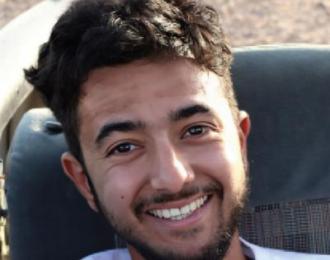Baltimore, MD - June 8, 2016 - Last week, the board of the JCC voted overwhelmingly to open the Owings Mills JCC for the full day on Shabbos, expanding on the afternoon opening that was initiated seven years ago. This is a troubling decision.
During the broad communal debate over the initial Shabbos opening of the JCC, many asserted that it would be inappropriate to initiate, within a communal facility, a practice or program that trampled on the deeply held sensitivities of a significant segment of the community. That argument was rejected by the JCC and the Associated, who claimed that the Orthodox had their JCC in the Park Heights building, while the Owings Mills campus belonged to the local non-orthodox population. The argument – made by a community that functions under the slogan of “We Are One” - was disturbing then and is disturbing now, but it is what it is.
As a result of this premise, this latest decision should have come as no surprise. But it, nevertheless, is both surprising and profoundly disappointing and concerning.
It is surprising because the initial opening was undertaken with a clear red line, that in deference to Shabbos the facility would open only in the afternoon, and with a pledge that the Shabbos experience at the JCC would be enriched with meaningful and substantive elements that would make that day at the J different than any other. This latter pledge was never fulfilled, and now, seven years later, the red line has been crossed.
It is disappointing and concerning as we consider the frightening trends of disaffiliation in the Jewish community. This should be the dominant concern of Jewish leadership and the thrust of communal investment - financial and human - as we face the crisis of continuity exposed most recently by the Pew study, but lived and witnessed by Jewish communal professionals and leaders each and every day.
The challenge of continuity grows stronger as connections grow weaker, as new generations of Jews come of age without memories of their Yiddish-accented Bubby and her Shabbos candles and Holiday recipes. Yet in Baltimore, the trends of disaffiliation in the non-Orthodox community - while alarming - have always been slower and better than in other communities. This does not appear to be a result of uniquely creative local programming initiatives, but rather can be attributed to our “Bubby substitutes”, i.e. the Associated’s commitment to maintaining a traditional structure and feel in its many robust organizations and facilities, and the unique cohesion and connection between the community’s various segments. These have provided the community with both structural and human anchors of Jewish identity and continuity.
The challenge faced by the JCC leadership is significant and understandable. The Owings Mills Jewish community is shrinking and not attracting young Jewish families, such that a significant percentage of new JCC members in Owings Mills are from outside the Jewish community. These members are joining the JCC not for Jewish community but for recreational convenience, and to attract them the JCC feels the need to compete with a brand new LA Fitness opening in the area. The result is a Jewish communal organization and facility that, in its struggle for financial viability, has chosen to drop critical elements of its traditional structure and to become less of a place of Jewish cohesion and connection, with the wishful hope of compensating for that profound loss with well-meaning promises of effective Jewish programming.
If we are in the business of keeping our fitness facilities operating in the black then this may be a good business decision. But, if we are in the business of maintaining, building and nurturing a Jewish future, and stopping the alarming erosion in the parts of the Jewish community that the JCC was created to keep connected, it appears to be a very poor business decision.
In the past, the Associated recognized that these decisions were not local to the JCC’s membership, finance and planning committees, but represented existential questions that needed to be addressed by a broader conversation with communal leadership. This time, they have not stepped forward to do that. They should.
All of us in the Jewish community face a challenging future and must share a commitment to do what we can to keep all Jews identified with the Jewish community. We need to put our heads together and consider what has worked and what has not; to choose how to invest our human and financial resources in ways that make sense for the real business at hand - maintaining, building and nurturing our Jewish future.
Rabbi Moshe Hauer is the spiritual leader of Bnai Jacob Shaarei Zion Congregation and a member of the board of the Associated.
















